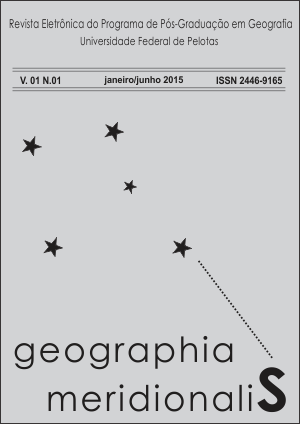O PAPEL DAS INSTITUIÇÕES DE ENSINO SUPERIOR PARA O DESENVOLVIMENTO TERRITORIAL: ANÁLISE DA COMUNIDADE DE PÓS-GRADUAÇÃO DO RIO GRANDE DO SUL E O CASO DAS CIDADES DE PELOTAS E RIO GRANDE / The Role of Higher Education Institutions to the Territorial...
Resumo
Atualmente, os processos de inovação configuram-se em um importante agente para o desenvolvimento social e econômico de regiões e de países. Assim, no âmbito do que se convencionou chamar de “paradigma heterogêneo da Geografia Econômica”, as capacidades específicas regionais são fundamentais para tais empreendimentos de desenvolvimento, dos quais uma tem sido cada vez mais valorizada: a do conhecimento proveniente das instituições de Ensino Superior (IESs) locais. O artigo tem o objetivo de debater o papel das IESs nesse contexto, em termos gerais, e de analisar a situação do Estado do Rio Grande do Sul, entre 2000 e 2010, por meio de sua estrutura de pós-graduação, em termos específicos. Ao final são delineadas algumas considerações a respeito de uma agenda de pesquisa para os municípios de Pelotas e Rio Grande sobre seu desenvolvimento territorial na perspectiva heterogênea. Os resultados ressaltam a fortaleza do quadro de pós-graduação gaúcho e, consequentemente, do Ensino Superior em geral, enfatizando também as potencialidades do Estado para o progresso científico, tecnológico e de inovações.
Palavras-chave: instituições de ensino superior; pós-graduação; ciência, tecnologia e inovação (C&T&I); desenvolvimento territorial; Pelotas; Rio Grande.
The Role of Higher Education Institutions to the Territorial Development: Analyses of the Postgraduate Community from Rio Grande do Sul and the Case of the Cities of Pelotas and Rio Grande
ABSTRACT
Nowadays, the process of innovation has become an important agent to social and economic development of regions and countries. Thus, within the context of the “heterodox paradigm of economic geography”, the region-specific capacities are fundamental for such activities of development, which one has been more and more appraised: the knowledge from the higher education institutions (HEIs). This article analyses the role of HEIs in general and the situation in the State of Rio Grande do Sul (Brazil) in particular, in the period of 2000 through 2010, by means of the postgraduate structure. The paper ends with some considerations about a regional agenda of research to the municipalities of Pelotas and Rio Grande in the sense of their territorial development within the heterodox perspective. The results highlight the strength of postgraduate structure of the region and, consequently, higher education in general, also stressing the State potentialities for scientific, technological and of innovative progress.
Key-words: higher education institutions; postgraduate; science, technology and innovation (S&T&I); territorial development; Pelotas; Rio Grande.
Downloads
Prezado autor: Utilize o modelo abaixo (link), preenchendo e enviando o arquivo digital em PDF como documento suplementar ao realizar a submissão de seu manuscrito.



